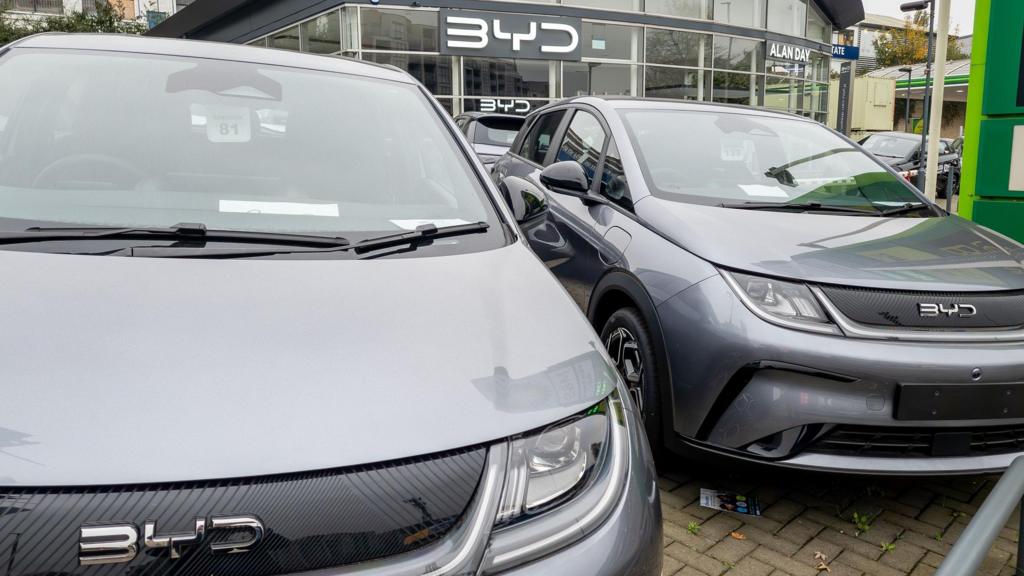New industry data reveals that 10% of all cars sold in the UK during June were manufactured in China.
Emerging Chinese automotive brands, including BYD, Jaecoo, and Omoda, are experiencing rapid growth within the UK market.
This surge in sales has been particularly pronounced in recent months, contrasting with the trend in most other G7 nations, which have implemented significant additional tariffs on Chinese imports.
According to the Society of Motor Manufacturers and Traders (SMMT), approximately 18,944 vehicles produced by Chinese-owned brands, such as MG and Polestar, were sold in June, representing 10% of the total UK sales volume. This marks an increase from 6% during the same period last year.
Over the first six months of the year, Chinese-made cars accounted for over 8% – or 1 in 12 – of all vehicles sold, up from 5% in both 2023 and 2024. The majority of these sales were electric vehicles, though not exclusively.
In comparison, a study by Jato Analytics analyzing the first five months of the year indicated that Chinese brands held a 4.3% market share across the EU, with figures of 1.6% in Germany and 2.7% in France. Spain, however, exhibited a higher market share of 9.2%.
Felipe Munoz, an analyst at Jato Analytics, commented: “The UK’s lack of tariffs presents a significant opportunity for Chinese manufacturers, coupled with the increasing popularity of electric vehicles.”
He added, “MG is also positioning itself effectively as a local brand. Furthermore, unlike France and Germany, the UK does not have a substantial domestic industry to protect.”
However, some prominent figures in the automotive industry have cautioned that the UK sector may struggle to compete, suggesting that the introduction of quotas may become necessary.
Chinese firms and their franchises have also been actively acquiring car dealerships.
John Neill, former President of the SMMT and ex-chief executive of Unipart, stated: “Chinese manufacturers are producing vehicles that are superior, more affordable, and more innovative across all market segments.”
He continued: “If they intend to sell here, we must encourage Chinese companies to establish manufacturing facilities within the UK.”
To date, the government has faced limited pressure from existing suppliers to emulate the tariffs imposed by the EU, US, and Canada on electric vehicles.
A majority of EU member states have supported the imposition of significant taxes on EV imports from China, potentially reaching up to 45%, while Canada has announced a 100% tax on Chinese-made EVs.
The EU and China are currently engaged in negotiations to replace the tariff with a minimum price system.
Several Chinese manufacturers are also in the process of establishing factories within the EU, which would enable them to export vehicles across Europe, including the UK, without incurring tariffs.
According to the SMMT, electric vehicles now account for one in four new car purchases in the UK. However, Mike Hawes, the SMMT’s chief executive, notes that the transition to electric vehicles has been driven by “unsustainable” discounting by manufacturers.
He stated: “As demonstrated in other countries, government incentives can significantly accelerate market transition.”
The Chinese owner of the firm has assured the government of its commitment to the UK while also exploring various options.
Sources at the BBC indicate that the car manufacturer is considering the move in response to the introduction of US tariffs.
Exports to the US experienced a 50% decline as President Donald Trump’s tariffs led some UK car manufacturers to cease shipments.
A taskforce has been approved to “manage and mitigate the economic shock” of Vauxhall’s departure from Luton.
The new Leaf model will be powered by batteries manufactured in Sunderland.

